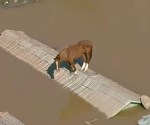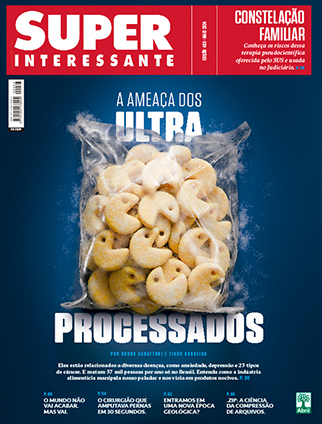Flight to Death
A tragic air accident prematurely ends the trajectory of Eduardo Campos, the presidential candidate from Pernambuco state who wanted to give the Brazilian political scene a new face

The private jet was on the runway at Santos Dumont airport in Rio de Janeiro, ready to take off. Inside, Eduardo Campos, the presidential candidate of the Brazilian Socialist Party (local acronym PSB), was glued to his mobile phone, filled with excitement. He felt he was at the gateway to the future and the future was brilliant. The previous evening, he believed he had given a classy performance during the 15-minute live interview on the prime time TV news program Jornal Nacional, the kick-off point of the television campaign. Some tough, incisive questions had given him a hesitant start but he had ended strongly, looking firmly at the camera and declaring: “We will not give up on Brazil”. When he met his wife, Renata, in the hotel they were staying in the Copacabana district at the end of the day, he exuded confidence. “I went there and scored a goal,” he said. Confidence had been Campos´s hallmark since he set off on the most daring project of his life: turning his back on his ally, the Workers Party (PT), and presenting himself in this election — alongside his unlikely running mate, Marina Silva – as a new option on the political scene, the “third way”. At the beginning of that morning, he believed the chance was within his grasp. At 09:17, with his seat belt fastened, he phoned the communication coordinator of his campaign, Alon Feuerwerker, and had an animated conversation with him about the interview and the TV electoral propaganda campaign that would begin eight days later. At 09:21, he switched the mobile off and the Cessna took off. It carried on board a man who was satisfied, good looking, happily married, the father of five children, firmly planted where he had always wanted to be — on the center stage of Brazilian politics — and destined to make history. At 10 o´clock that rainy morning there was an explosion. The jet crashed into a busy district of Santos on the São Paulo coastline, killing all seven people on board. It was the end of the dream for Eduardo Campos from Pernamuco state who has just celebrated his 49th birthday, the exponent of a new generation of politicians, who disappeared in a dramatic, shocking second before he could show what he could have been.
Destiny decided Eduardo Henrique Accioly Campos would be the victim of a fatal accident — precisely him, the man who had always proceeded with meticulous planning in life and politics. Entering politics was not difficult. He was born into a splendid cradle for a political career as the grandson of the powerful, respected leftist leader Miguel Arraes. When his grandfather was state governor, Campos took his first steps as chief of staff (aged 22 and just graduated in economics) and then as finance secretary. However, his ambition was greater than just being the natural heir of a political generation that was clearly worn out. Campos saw the appeal of a candidate who could present himself as something new, a bet that was not contaminated by old addictions. He rolled up his sleeves and got to work. He pledged to raise his own standard and go his own independent way over the last 12 years during which he served his third mandate as a Congressman and was governor of Pernambuco state twice.
In 2002, as a Congressman with his eye on being re-elected, Campos went against his grandfather for the first time. His grandfather wanted him to be a candidate for the state Legislative Assembly and not Congress which he himself aspired to. Arraes was fearful of dividing votes with his grandson but Campos put his foot down. It was his will that prevailed in the end and both were elected to the House of Representatives. Shortly afterwards, he agreed to become a member of the first Lula government, as minister of Science and Technology. (“It was my Christmas present,” the President gushed.) He became Lula´s fixer in Congress when the split opened by the bribes-for-vote scandal known as the “mensalão” was causing damage — a period in which Campos exercised his skill in forming and tailoring alliances. He and Lula were very close, even intimate companions but Campos wanted to shine on the stage himself. In 2006, he decided to stand as governor in Pernambuco against the PT candidate. He started with 4% of voting intentions and ended up anointed with over 60% of the votes. He headed a state government that was highly regarded, was re-elected with 82%, and took a critical step in his political independence last year when he decided to launch himself as a presidential candidate instead of supporting the re-election of the PT´s Dilma Rousseff.
Campos did not bear the name of his maternal grandfather, Arraes, due to a decision by his father, the writer Maximiano Campos. Campos´s father wanted to avoid problems for his son who was born a year after the military coup that stripped Arraes of his political rights and exiled him. The boy Eduardo (Dudu as he was called) only got to know Arraes when he was 10 years old and was taken by his mother, the lawyer Ana Arraes, to visit his grandfather in Algeria where he was in exile. “We had exchanged letters previously, two or three of which arrived every year,” Campos told VEJA in an interview in Recife three days before his death. They shared views of the world but also had differences. Campos said: “We were born in very different social periods – my grandfather in the “sertão” (backlands) at the beginning of the 20th century while I was born in the city in 1965. Everyone is marked by his times”. They became close when Arraes returned to Brazil. Campos gave up studying for a master´s degree in the United States and became engaged in his grandfather´s campaign to become governor of Pernambuco. Once elected, the elderly Arraes was exasperated by the long line of politicians his grandson included in his daily agenda at the governor´s palace. “You can´t decide on your own to bring all these people here,” he complained. Campos replied that it was essential as these politicians were allies who had ensured the election result. Arraes gave in. Campos also learned from his grandfather never to mention the name of anyone he disliked when replying to attacks. Another invaluable lesson was not to hesitate to make deals with adversaries when necessary.
Before announcing his candidature for the Presidency when he was still linked to the government, Campos formed a symbolic alliance with Jarbas Vasconcelos, the main historic adversary of the Arraes clan. He reached the conclusion that he needed to bring together all the political forces in Pernambuco if he wanted to become a viable alternative at national level. On sitting down with the old enemy and feeling there was a certain embarrassment in the approximation, Campos threw out the bait. “It is difficult to get along with the PT,” he said. Vasconcelos recalled: “He disarmed me by saying that as he knew I was totally against the PT´s practices”. By doing so, Campos was consolidating his strategy of bringing a breath of fresh air to the mold of national politics. Everything had been thought out and planned — until the unthinkable happened on that fateful morning of August 13, the exact date on which Arraes had died nine years earlier.
Campos was a centralizer with a penchant for surrounding himself with relatives in government and letting only a few people influence him. His greatest confidant was his wife, “dona” Renata, as he called her, whom he began dating when he was 15 and with whom he had five children. “Those who know Eduardo well know that no subject is completely decided until he has heard Renata´s opinion”, said the president of the Pernambuco PSB, Sileno Guedes, a few weeks ago. They never went anywhere without each other during the campaign. She was always with their youngest son, Miguel, aged only seven months, on her lap. On August 5, Campos was dealing with political matters while holding his son with a diaper on his shoulder. His birthday coincided with Father´s Day and he won a video as a present from all the children which he showed off proudly. “Man, I cried like mad,” he said. At home, which had previously been in a party atmosphere and is now devastated by the tragedy, Renata reflected: “I feel that death knocked on the wrong door”.


 SEGUIR
SEGUIR
 SEGUINDO
SEGUINDO

 O que o resgate do cavalo Caramelo revela sobre o Brasil
O que o resgate do cavalo Caramelo revela sobre o Brasil Despreparo e descaso: o que está por trás da tragédia no RS
Despreparo e descaso: o que está por trás da tragédia no RS O motivo de Ana Hickmann para não comparecer em audiência com ex-marido
O motivo de Ana Hickmann para não comparecer em audiência com ex-marido 5 romances com mulheres maduras melhores que ‘Uma Ideia de Você’
5 romances com mulheres maduras melhores que ‘Uma Ideia de Você’ A apresentadora do SBT que ficou no meio de ‘fogo cruzado’ com a Globo
A apresentadora do SBT que ficou no meio de ‘fogo cruzado’ com a Globo







